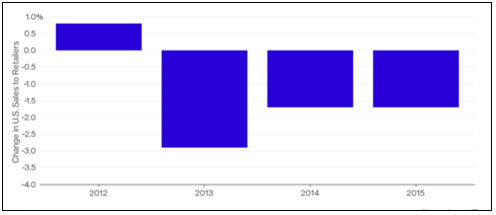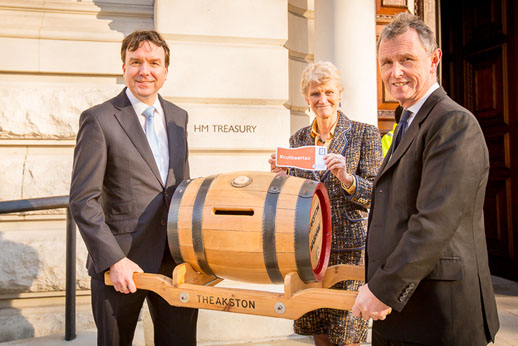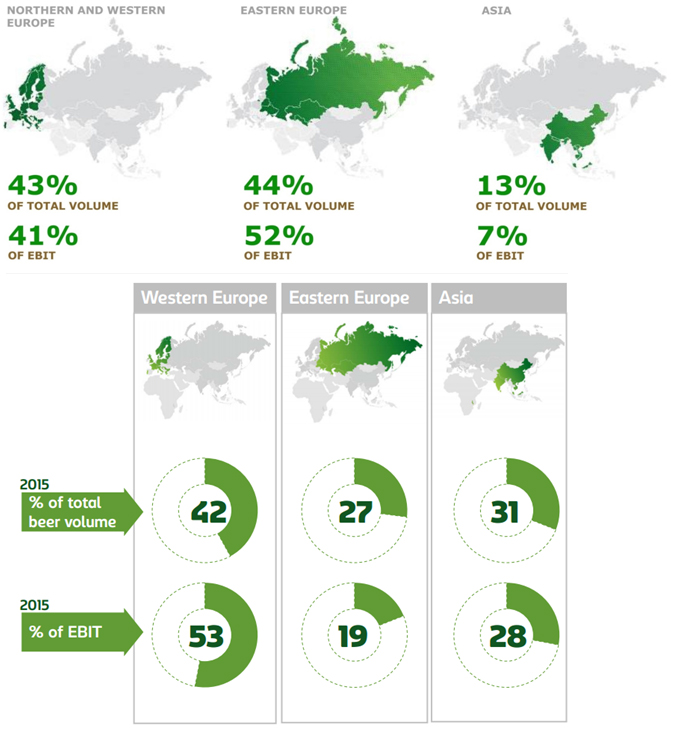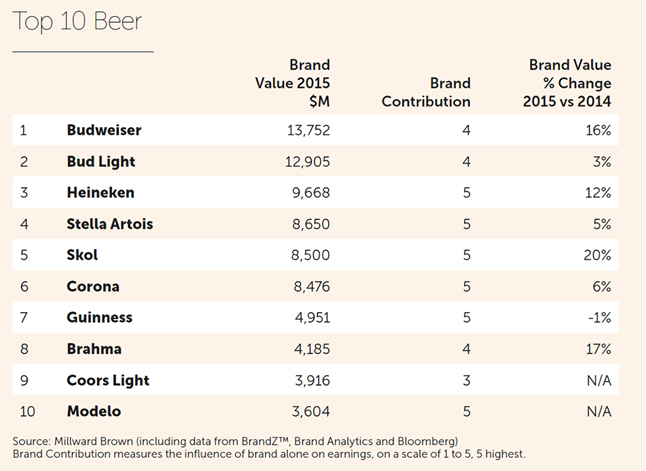Looks like the global beer party is over. AB-InBev on 25 February 2016 issued a warning that a slowdown in markets such as Brazil and China will weigh on the brewer this year.
Why do Russians prefer local beer brands? Because some of them are cheaper than the foreign owned ones. Over the past five years, the share of local brands in the Russian beer market has increased from 15 percent to 25 percent, the Turkish brewer Efes reported in January 2016.
Let’s see how it goes. The maker of Punk IPA is planning to run an “Equity for Punks” crowdfunding campaign in the U.S. in May this year, although admitting that its latest crowdfunder in the UK is still a few million bob short of target it set for April.
Acknowledging that some brands still require local ties, AB-InBev’s CEO Carlos Brito symbolically broke ground in Leuven on 22 February 2016. At its Artois brewery AB-InBev will expand brewing capacity to 12 million hl by 2017. That’s an increase of 30 percent over today and represents an investment of EUR 55 million.
Will there be another cut in beer duty when the Chancellor of the Exchequer releases his budget on 16 March 2016? It is to be hoped.
How times are changing. Carlsberg made more profit last year in Asia than in eastern Europe for the first time. Eastern Europe – predominantly Russia – accounted for just 19 percent of operating profits last year, down from a peak of 52 percent in 2009, while Asia jumped to 28 per cent.
ThaiBev’s aggressive posturing did its trick: it separated the serious bidders for SABMiller’s brands Peroni and Grolsch from the ditherers.
Bad timing. Two of the world’s major brewers released their annual results on the same day. And they could not have been more different. While Dutch Heineken benefitted from rising demand for premium beers in Latin America, the Danish brewer Carlsberg continued to suffer from declining demand in Russia.
It’s a miracle. In 2015, German brewers are estimated to have sold as much beer as in the previous year (95 million hl), without there having been a special “beerable” event like the World Football Championship in 2014. Actually, it’s not a miracle at all. German brewers just did what they have been doing for long: they notched up the promotion rate. During the first half of 2015, Germany’s top 10 pils brands sold 76 percent of their volume on offer. In 2010, only 60 percent of their volume was sold at a discount.
All is fair in love and war. Company auctions are usually hush-hush affairs. But not for ThaiBev. It let it be known on 25 January 2015 that it has used its Singapore listed unit Fraser and Neave (F&N) to “bid without condition” for SABMiller’s Peroni and Grolsch beer brands. One day later F&N confirmed on its website that it has expressed an interest.





